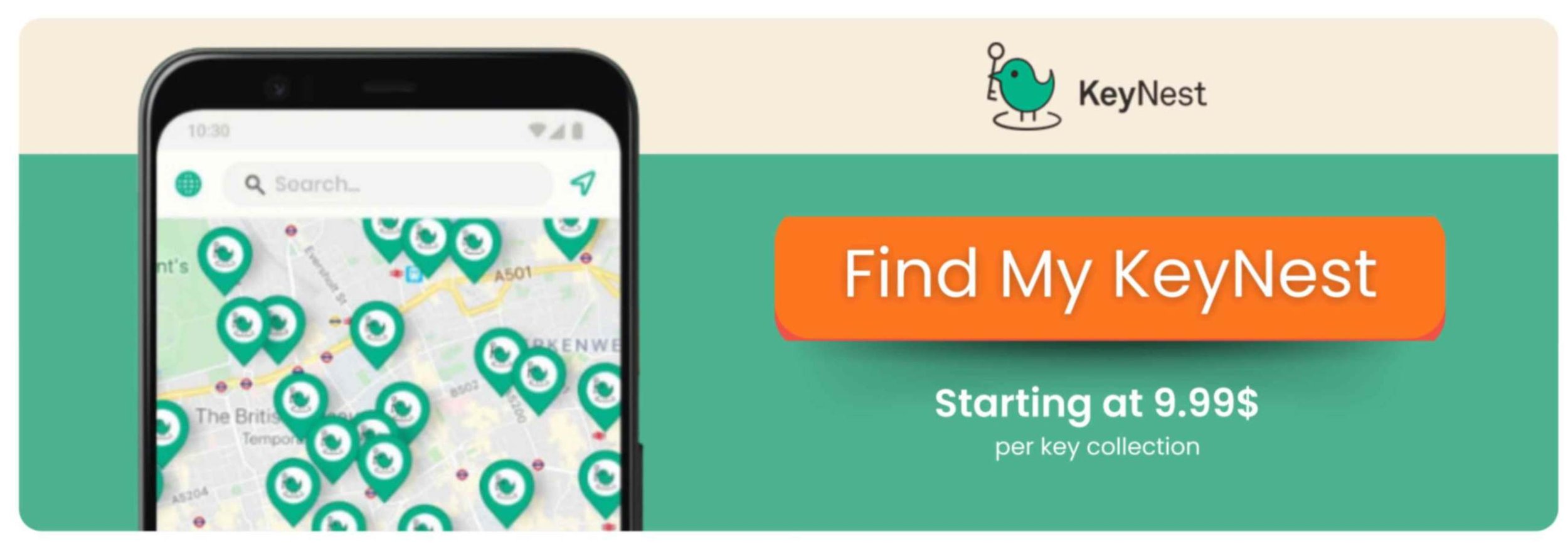Short-Term Rental Laws In Florida For Airbnb Hosts To Know
Florida remains a top destination for holiday makers, known for its sunny beaches, vibrant nightlife, and picturesque coastal towns. With the increasing popularity of short-term rentals, state and local authorities have introduced on a recent legislation stricter in the state of Florida short-term rental regulations like Airbnb to strike a balance between tourism, property management and community well-being. For property managers and rental hosts, staying compliant with these evolving rules is essential to safeguarding their businesses and avoiding hefty penalties because of these short-term rental market regulations. Managing short-term rental properties in Florida even with proper rental agreement now involves navigating a complex landscape of licensing requirements, tax obligations and property use restrictions.
Understanding Florida vacation rental licenses and regulations may seem challenging, but doing so can help streamline operations and enhance guest experiences. The definition of a short-term rental as managing a single property or overseeing multiple listings and knowing the right compliance steps will be crucial this year. Licensing mandates, vacation rental certificate, rental permits, zoning laws and safety standards are just a few of the aspects property owners need to consider. Additionally, tax obligations, both at the Florida department of business and county levels, demand accurate record-keeping and timely payments to avoid fines. Local regulations, such as noise ordinances and guest behavior guidelines, must also be enforced to maintain good standing with neighbors and authorities. Being proactive and well-informed about these requirements can set you apart as a responsible and professional rental owners. Implementing best practices in your vacation rental property for safety and cleanliness will not only satisfy regulatory demands but also attract more guests seeking secure short-term rentals in Florida.
As regulations continue to evolve on short-term vacation rental in the Florida state, adapting to new rules will be essential for long-term success. This guide covers the most critical legal requirements, from zoning laws and safety protocols to tax considerations and community guidelines. By understanding and adhering to these regulations, hosts can protect their investments and build a positive reputation in the rental market. Let's explore the essential steps and strategies to help you navigate Florida's holiday rental landscape in the following years successfully.
1. Airbnb Licensing Requirements For Short-Term Rental In Florida
The need to apply for a correct license is crucial for operating holiday rentals in Florida. Property managers must apply through state or local authorities to ensure legal compliance on the short-term rental registrations and regulations.
The type of license required may depend on property location, rental cost and rental duration. Staying up-to-date with licensing changes helps avoid potential penalties as rental operators running a short-term rental business.
Licensing ensures compliance: State local laws mandate that vacation rentals in the state meet specific standards to protect guests.
Registration with the Department of Business and Professional Regulation (DBPR): This step is required for all vacation rentals.
Local licenses may vary: Counties and cities may require additional permits in their rental industry.
Annual renewal: Rentals need to renew licenses annually to maintain legal operations.
Strict application process: Detailed property information and inspections are often part of the licensing process.
Penalties for non-compliance: Fines can be hefty for unlicensed properties.
Tip: Stay organized with a calendar reminder for renewal deadlines.
2. Zoning And Property Laws For Rental Business In Florida
Short-term rental laws for zoning in Florida differ across municipalities and regulate where short-term rentals can operate. Property managers and their rental units must be verifies by the local zoning restrictions to ensure compliance in the Florida cities.
Some areas may impose specific limits on rental types or durations for Airbnb hosts. Understanding these laws is crucial to avoid fines or operational disruptions.
Understand your property's zoning classification: Not all zones allow short-term rental permit based on the rental laws in Florida.
Neighborhood restrictions: Some homeowner associations (HOAs) impose additional rules on the location of your vacation rental business.
Impact on guest capacity: Zoning laws and regulations governing short-term rentals may dictate the maximum number of occupants.
Noise limitations: Many areas enforce quiet hours and noise restrictions. Vacation rental operators need to inform their guests to limit noise.
Parking regulations: Check local ordinances to avoid guest parking violations.
Review city-specific guidelines: Each city may have its zoning restrictions.
Tip: Always consult local zoning boards before listing a property.
3. Florida Short-Term Rental License & Tax Obligations
Fulfilling tax laws and obligations in the sunshine state of US is essential for maintaining compliance in Florida's short-term rental market. Property managers must register with the state to collect and remit taxes, including sales and tourist development taxes.
Failure to meet these requirements in many Florida cities by vacation rental owners can result in penalties and legal issues. Keeping detailed records simplifies tax reporting and ensures transparency.
State sales tax rate collection: Hosts must collect and remit sales tax on bookings based on Florida laws.
Tourist development tax: This additional tax is applicable in many counties for all Airbnb businesses in Florida.
Timely tax payments: Failure to remit taxes from your rental fees can lead to fines and penalties.
Online platforms may assist: Airbnb and other booking sites may handle tax collection.
Separate record-keeping: Maintain detailed records of all rental activities and transactions from short term vacation.
State and county obligations: Both levels require proper tax filings.
Tip: Hire a tax consultant to simplify the process and avoid errors.
4. Safety And Health Compliance Vacation Rental Rules
Ensuring guest safety and health is essential for Florida holiday rentals. Property managers must meet fire safety regulations, provide emergency exits and maintain smoke detectors.
Health requirement laws are subject to strict standards on the state and may include proper sanitation and pest control measures. Regular inspections help maintain compliance in the vacation rental market and protect guests.
Fire safety equipment: Properties must have smoke detectors and fire extinguishers before getting a Florida Airbnb booking.
Escape routes: Clearly marked emergency exits are essential.
Swimming pool safety: Secure fences and proper signage are mandatory for properties with pools.
Cleanliness standards: Regular cleaning and sanitation are critical for guest health.
Building code compliance: Ensure your property meets structural safety requirements.
Annual inspections: Some counties may require routine property inspections.
Tip: Create a safety checklist to regularly assess your property's compliance.
5. For Local Restrictions And Noise Regulations For Short-Term Rentals
Many Florida municipalities impose additional rules beyond state requirements for the regulation of short-term rentals industry. These can include noise regulations, occupancy limits and parking restrictions. Understanding before starting an Airbnb business and adhering to local ordinances is essential for maintaining positive community relationships.
Staying informed helps property managers avoid fines and maintain guest satisfaction.
Quiet hours: Typically enforced between 10 PM and 7 AM in residential areas.
Noise level monitoring: Some hosts invest in noise-monitoring devices.
Event restrictions: Short-term rentals must not be allowed to host parties or events.
Trash disposal regulations: Ensure timely waste management to avoid fines.
Guest behavior guidelines: Inform guests about local rules upon check-in.
Neighborhood harmony: Maintaining a peaceful environment is essential for good community relations.
Tip: Include a clear house rule document for guests to avoid issues.
6. Staying Updated With 2024 Short Term Rental Laws
The legal landscape for holiday rentals continues to evolve.
Regular updates: Monitor news and government announcements on regulations.
Join local property management associations: Gain insights from industry experts.
Attend city council meetings: Stay informed about proposed changes.
Consult legal professionals: Keep a lawyer on retainer for compliance advice.
Leverage technology: Use software to track changes in regulations.
Online forums: Connect with other property managers for shared knowledge.
Tip: Set up alerts for news related to holiday rental regulations in Florida.
Navigating Florida Vacation Rental Regulations With Confidence
Understanding and adapting to Florida's holiday rental regulations in 2024 is essential for property managers and hosts seeking long-term success. The evolving legal landscape requires staying informed and proactive to maintain compliance and protect your business. From obtaining the necessary licenses and navigating zoning laws to fulfilling tax obligations and meeting safety standards, there are numerous aspects to consider. By staying updated on local rules and adopting best practices, you can offer a safe and enjoyable guest experience while avoiding costly penalties.
Leveraging technology and seeking professional advice can further streamline your operations. As regulations continue to change, being adaptable and resourceful will help you thrive in Florida's holiday rental market. Stay proactive and position your property for success by embracing compliance as a competitive advantage.
About Us
KeyNest offers you a convenient service for storing and exchanging your property keys. You can drop off a key at any of the 7,000+ locations in our network, so there’s one such Point located next to your property.
Guests, cleaners or contractors can then collect the key securely from a KeyNest Point or KeyNest Locker which is usually open 24/7. You'll be notified each time the key is picked up or returned, and you can even customize check-in and check-out times. By leveraging technology and a global network of locations, KeyNest continues to redefine property management, offering solutions tailored to meet the evolving needs of the rental market..
KeyNest has an ever-expanding global network of locations located just minutes from your property. To find out more you can contact us.
Neil Beltran 6 February 2025



